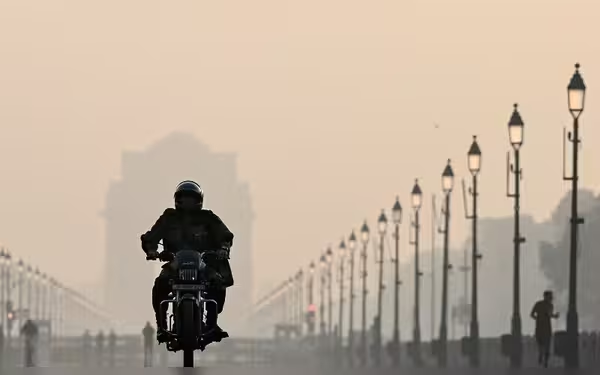Saturday, November 16, 2024 07:48 PM
New Delhi Suffers Severe Smog After Firework Ban Ignored
- Diwali celebrations lead to hazardous air quality in New Delhi.
- Firework ban flouted, worsening pollution levels.
- Health risks escalate for vulnerable populations in the city.
 Image Credits: dawn.com
Image Credits: dawn.comNew Delhi faces severe air pollution as firework ban is ignored during Diwali, raising health concerns for residents.
New Delhi, the bustling capital of India, is once again grappling with severe air pollution, a situation exacerbated by the recent Diwali celebrations. Every year, the festival of lights brings joy and festivity, but it also raises concerns about the environmental impact of firecrackers. In an effort to combat the worsening air quality, city authorities had imposed a ban on the sale and use of fireworks. However, this ban was largely ignored, leading to a significant increase in air pollution levels.
On the night of Diwali, despite the restrictions, the skies over New Delhi were lit up with the bright flashes of firecrackers. Reports indicate that the air quality deteriorated sharply on Friday, following a night filled with the sounds and sights of fireworks. City police had made efforts to curb this trend by seizing nearly two tonnes of fireworks before the festival. Unfortunately, these efforts proved insufficient as many firecrackers remained easily accessible for purchase in neighboring states.
The consequences of this disregard for the ban are dire. The air quality index (AQI) in New Delhi has reached alarming levels, with many areas recording hazardous readings. This poses serious health risks to the residents, particularly vulnerable groups such as children, the elderly, and those with pre-existing health conditions. The thick blanket of smog that envelops the city not only affects visibility but also contributes to respiratory issues and other health problems.
As the city struggles to breathe, it raises an important question: How can communities balance cultural traditions with the need for environmental responsibility? While Diwali is a time for celebration, it is crucial for individuals and communities to consider the impact of their actions on the environment. The government and local authorities must also enforce stricter measures to ensure compliance with the ban on fireworks in the future.
The situation in New Delhi serves as a stark reminder of the challenges faced in urban areas where tradition meets modern environmental concerns. It is essential for everyone to work together—citizens, authorities, and organizations—to find sustainable ways to celebrate festivals without compromising air quality. Only through collective effort can we hope to preserve the joy of celebrations while safeguarding our health and environment for future generations.













